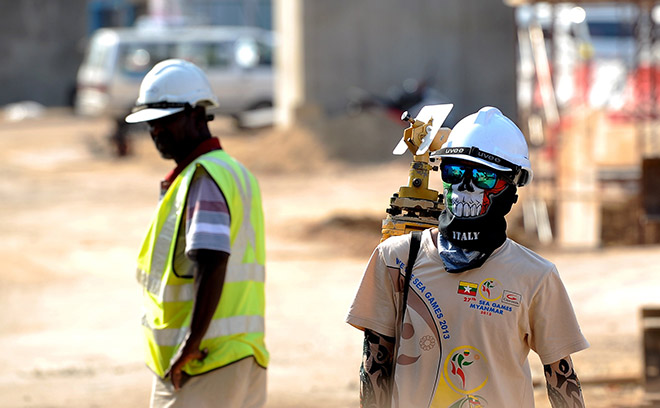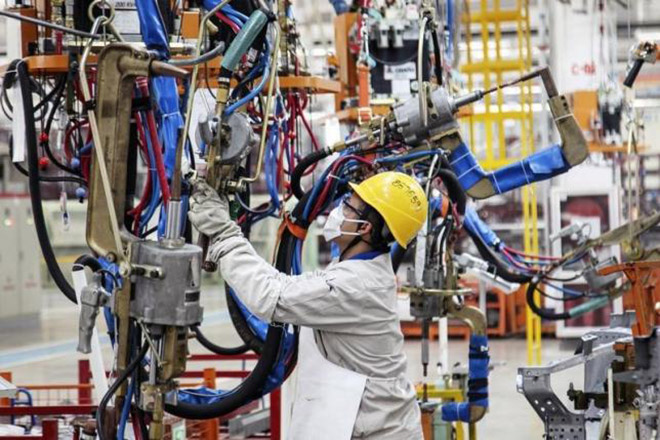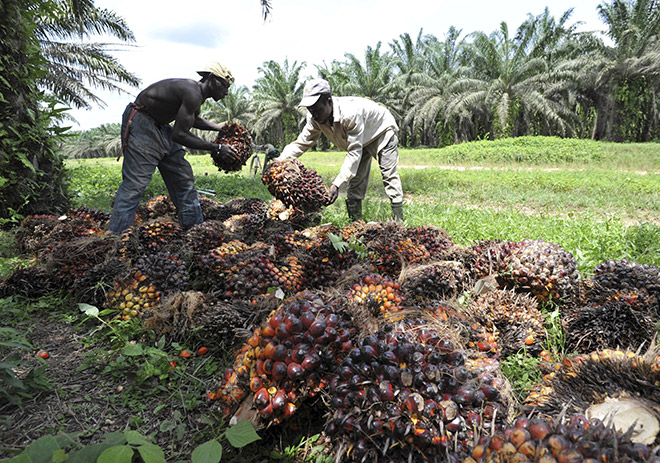 Associations and corporations here are feeling the brunt of changes to and for foreign workers, all which will consequently leave a long-term impact on the country’s productivity.
Associations and corporations here are feeling the brunt of changes to and for foreign workers, all which will consequently leave a long-term impact on the country’s productivity.
The first issue which caused uproar was the hint of a hike in foreign worker levy. It was announced that the new rates for the two categories were to be RM2,500 and RM1,500 respectively effective Feb 1, but implementation was postponed after complaints from industry stakeholders particularly from the labour intensive ones.
The hike was part of the 11 measures that was announced under the revised Budget 2016 whereby foreign workers’ levy will be charged according to which of two categories they come under.
Businesses are understandably upset, local observers note, as the hike came at a time when costs of doing business have risen, on the back of an impending hike in minimum wages scheduled to come into force from July 1 this year.
Since then, the new levy rates for foreign workers have been revised and are effective March 18 for Peninsular Malaysia only.
Home Ministry (KDN) secretary-general Datuk Seri Alwi Ibrahim said the new rate for the First Category covering the manufacturing, construction and services sectors is RM1,850 whereas for the Second Category (plantations and agriculture) the rate is RM640.
The new rates entailed and increase of RM600 for the sectors in the First Category and RM230 and RM50 for the plantations and agriculture sectors respectively.
“The difference in rate increase is reflective of the income or incentives offered to workers in the particular sectors,” he said in a statement.
Alwi said the ministry was confident that the latest rates were still competitive and commensurate the facilities and infrastructure provided by the government which the foreign workers also enjoy.
“The government is of the opinion that these are the optimum rates for now to ensure economic growth is not affected and the objective of the government to reduce dependence on foreign labour by labour intensive industries is met.
“Industries are encouraged to take more proactive steps to switch to automation or mechanisation,” he said.
Foreign worker freeze
However, this issue was immediately followed by the freeze in the intake of foreign workers into the country, announced by Deputy Prime Minister Datuk Seri Dr Ahmad Zahid Hamidi, with immediate effect.
However, Ahmad Zahid said the decision, made at a Cabinet meeting, did not involve the domestic help sector and any employer who wants foreign workers must get them from among those who are already in the country but whose work visas had expired.
This was seen as a move to give the government space to review the total manpower needs of the country.
Malaysian Trades Union Congress (MTUC) secretary-general N Gopal Krishnam, who supported the postponement, also proposed for the government to set up a Royal Commission of Inquiry (RCI) to study and investigate the actual needs of foreign labour in the country.
“Through the RCI, the government can evaluate the actual number of foreign workers needed for the five main sectors namely manufacturing, construction, services, agriculture and plantation,” he told Bernama on FFebruary 19 this year.
The government will stop the recruitment of new foreign workers with immediate effect, Deputy Prime Minister Datuk Seri Dr Ahmad Zahid Hamidi said.
Ahmad Zahid said employers who wanted to hire foreign workers should recruit the existing foreign employees in the country including those whose permits had expired.
“They (employers) can also hire foreign workers who are not registered under the 6P programme (the Illegal Immigrant Comprehensive Settlement Programme),” he told reporters after presenting appointment letters to village heads in the Bagan Datoh parliamentary constituency for the 2016/2017 session on March 12.
Ahmad Zahid who is also the Home Minister said following the Cabinet’s decision, the issue of bringing 1.5 million Bangladeshi workers into the country could be considered ‘closed’.
He said employers or agents who were found guilty of protecting illegal foreign workers would be subjected to whipping under the Immigration Act and Anti-Trafficking in Persons and Anti-Smuggling of Migrants (Atipsom) Act.
“Whipping will be meted out by courts because the punishment with fine has no effect as employers and agents still keep bringing in illegal foreign workers,” he said.
Elaborating, Ahmad Zahid said the whipping sentence was aimed at dismissing all false allegations against the government, including the accusation that the government was trying to make a profit out of the recruitment process.
He said the government had given ample opportunities for employers to register their foreign workers through the rehiring programme that would expire on June 30.
Ahmad Zahid suggested that employers who wanted to hire foreign workers should submit their applications to the Malaysian Employers Federation; Malaysian Trades Union Congress (MTUC) and the Federation of Malaysian Manufacturers.
A total of 10,239 foreign workers were registered by 2,210 employers under the Rehiring Programme since Feb 15 until Feb 28. The Rehiring Programme up to December 31 is to provide opportunities for illegals from 15 source countries working illegally in the country to be granted valid work permits to meet the permitted employment sector.
Deputy Home Minister Datuk Nur Jazlan Mohamed however was not satisfied with the number, cigting how low it was.
“To say they face difficulties signing up is not justified because it can done online and they need not have to go to the immigration office or company to register the illegal immigrants,” he told reporters after presenting the Immigration Department 2015 excellent service awards to 813 recipients.
He said employers who were not IT savvy could visit the immigration branches for advisory service.
He said the registration fee of RM800 under the Rehiring Programme was reasonable and fair and took into account the various costs incurred by the government following the entry of foreign workers, including the costs of health, safety, detention and deportation.
“To me it is a fair trade off, you want foreign workers you pay for it,” he said, noting that the registration fee in Malaysia was much lower compared with other countries such as Singapore and Middle East.
Industry players urge government to reconsider foreign worker intake freeze, rehiring programme
On the other end of the spectrum, companies, bodies and associations are calling on the government to reconsider the postponement on the intake of foreign workers to meet the needs in numerous sectors in the country.

The Master Builders Association Malaysia (MBAM) has urged the government to immediately lift the suspension on the intake of foreign workers, especially for quota already approved prior to the order.
In a statement, the association also appealed that the freeze order on renewal of permits for foreign workers be lifted.
President Matthew Tee said the affected workers were at risk of being arrested and deported.
“The two orders had caused extreme difficulties for employers across industries, including construction industry. The contractors are already facing thinning profit margins and the shortage of manpower will affect their productivity and delay the project completion, causing them to pay penalties which will erode their profit margins further,” he said.
Tee said some smaller sub-contractors could even go out of business in the medium to long term as they depended on larger contractors to finance the recruitment of foreign workers for them.
“Some contractors might also resort to employing illegal foreign workers to complete their projects on time and within budget, which will defeat the objective of the suspension which aims to control the number of foreign workers in the country,” he said.
An industry player, Balqis Textile and Manufacturing Sdn Bhd executive chairman, Datuk Zuraidi Rahim, representing the northern region factory operators, said the postponement would affect the operations of manufacturing, plantation and construction sectors.
He said factory operators might go under if there were no foreign workers because local workers were not keen and capable of performing jobs they considered dirty, dangerous and difficult.
“Local workers can’t sit in front of a sewing machine and sew clothes for eight hours non-stop whilst their foreign counterparts can do so until their supervisors tell them to stop,” he said to the media.
Company managements did not sideline local workers in the industrial sector but they were placed in management posts with salary, safety and incentives which were higher compared to those of foreign workers.
Meanwhile, the SME Association hopes the government will look into the rehiring programme for foreign workers without permits by simplifying it to help the small and medium enterprises (SMEs).
SME Association of Malaysia National President, Michael Kang, said the move will reduce the cost for SMEs.
“I hope the government will work closely with the business associations and local chambers of commerce to legalise all the illegal workers to help SMEs grow their businesses,” he said at the association’s gathering recently.
The rehiring programme, which was unveiled on February 15, aims to give an opportunity to illegal foreign workers in Malaysia to apply for valid work permits to meet labour demand in specific sectors after tight screening.
It is learnt that the rehiring programme will carry on for the undocumented immigrants from the existing 15 countries of origin and no actions will be taken against compliant employers and workers.
Kang said 2016 will be challenging year for the SMEs as the global economy was facing strong headwinds and the SMEs should be prepared for this.
He said with the full implementation of the Trans-Pacific Partnership Agreement there will be intense competition and SMEs should buck up to compete internationally.
“Free trade is good for the country as it gives the SMEs international market access. We hope the SMEs will upgrade their products and services to be compete on international level,” he said.
The Federation of Malaysian Manufacturers (FMM) is seeking further clarification from the government on the recent freeze in intake of foreign workers from all source countries.
Manufacturers had always made efforts to recruit local workers first as imposed by the government, it said, before they could apply to bring in foreign workers. Hence, companies that had received approvals to bring in foreign workers had already justified their need for additional manpower that it could not be met by local workers.
“It is unclear to manufacturers how long the suspension would take effect. Some employers have received approvals to bring in foreign workers and are already in different stages of recruitment, including awaiting workers who were already on their way to Malaysia,” FMM said in a statement.
FMM hoped that the issues of levy and recruitment of foreign workers could be resolved expediently to avoid any deleterious effect on economy.
Demand for low skill foreign workers increased in 2015
Malaysia continued to depend on low-skilled foreign workers with their demand increasing to 2.14 million people last year.

According to the Bank Negara 2015 Annual Report, demand for low-value production and low-skilled workers remained high last year, compared to 2.07 million workers in 2014.
The report said agriculture and construction sectors registered the highest dependence on such foreign labour.
“Total employment continued to expand to 13.8 million workers in 2015 (13.5 million in 2014). A total of 226,000 jobs came mainly from the service sector, particularly in the distributive trade, education, human health and social work sub-sector.
“The construction sector registered net employment gains of 54,000 jobs while employment growth in the oil and gas sector remained steady, despite large scalebacks during the year,” the report said.
In terms of the skill level, employment gains were mainly concentrated in the high skilled occupations, reflecting a continued shift of the country’s economy towards becoming a higher value added industry.
The report also explained most of the layoffs (retrenchments and voluntary separation scheme (VSS) offering) last year were mainly attributed to the decline in global oil prices and reorientation of multinational firms business strategic.
It said the layoffs were conducted on a global and regional scale, particularly among oil and gas companies and manufacturers in the electric and electronic sub-sector.
“Among domestic companies, the national airline implemented a large corporate transformation exercise while financial services firms took steps to enhance their operational efficiency, in line with global trends in the financial service industry,” it said.
The number of workers laid off totaled 21,713 persons or approximately 0.2 per cent of total employment.
Mega projects need foreign workers – PKMM
The mega development projects that are planned for the convenience and well-being of the people need the help of foreign workers to make it materialise, according to a contractor association.
Malay Contractors Association (PKMM) president Datuk Mokhtar Samad said as such the recruitment of 1.5 million Bangladeshi workers was timely to ensure that the projects would be completed as soon as possible.
These include DUKE Highway, MRT2, LRT3, Sungai Buloh Township, Gemas-Johor Baharu Electrified Double Tracking Railway and PR1MA housing projects.
“The construction industry is very dependent on the participation of foreign workers of about 93 per cent,” he said in a statement.
He was commenting on Deputy Prime Minister Datuk Seri Dr Ahmad Zahid Hamidi’s statement that the workers were being brought into the country on the request of industries in the sectors permitted, not because the government wanted it.
In another development, Mokhtar urged the government to reconsider the new levy rate for foreign workers so that all parties would not be burdened and benefit from it.
The government announced that effective on Feb 1, the levy rate for foreign workers in the manufacturing, construction and service sectors would be raised to RM2,500 per person, while those in the farming and agricultural sectors, to be increased to RM1,500 per person.
The restructuring, however, did not involve the levy rate for foreign maids, which was set at RM410 per person.
Stricter conditions needed for new investments to address foreign worker issue
The government must be more selective and impose tighter conditions when issuing permits to new investments in the manufacturing sector and work passes for the service sector to reduce the influx of foreign workers, according to the Sultan of Perak Sultan Nazrin Shah.
He believed that permits for foreign investments here should depend on the country’s priorities and employment opportunities given to locals.
“It is meaningless to the country when the government has to issue permits for more foreign workers to be brought in for jobs which are offered,” he said during the launch of the Advanced Technology Training Centre (ADTEC) earlier in February.
According to statistics from the Home Ministry, the number of social work visit passes issued to foreign workers increased from 2.073 million in 2014 to 2.135 million last year.
The total remittance volume sent home by foreign workers from Malaysia increased 23.2 per cent to RM34.75 billion in 2015 from RM28.21 billion in 2014. AQccording to the Ministry of Finance, Indonesia was the top recipient of remittances from 2011 to 2015, followed by Bangladesh, Nepal, India and the Philippines.
The remittances grew from 17.1 per cent in 2011 to 23.2 per cent in 2015. The total remittance volume jumped to RM28.21 billion in 2014 from RM22.7 billion (2013), RM18.4 billion (2012), and RM15.7 billion (2011).
As for last year, RM6.2 billion was remitted to Indonesia followed by RM4.6 billion (Bangladesh), RM3.6 billion (Nepal)), RM2 billion (India) and RM1.1 billion (the Philippines).
“The number of illegal foreign workers is said to be at least twice the number of those with work passes,” Nazrin went on to note. “If this is true, it means that there are more than four million foreign workers currently working in Malaysia,”
Sultan Nazrin said last year, foreign workers sent RM34.7 billion back to their countries, which is equal to 2.37 per cent of the Gross Domestic Product.
“It is estimated that the actual number is much higher as some of the money sent back to their countries is through unofficial channels,” he said.
MPN to develop framework for managing foreign workers
As such, it remains pertinent for the government to develop a framework on management of foreign workers in Malaysia. This comes as the National Council of Professors (MPN) said this will be done the latest by May.
MPN chief executive officer, Prof Datuk Dr Raduan Che Rose said the framework would be used as guidance or input for the government in recruitment of foreign workers still required in certain sectors.
He said MPN would also get inputs from related government agencies, academicians, employers and also workers’ associations to develop the framework.
“This matter on foreign workers will be a national strategic issue that requires a comprehensive framework,” he told a media conference after chairing a round-table discussion on managing foreign workers.
Raduan said the development of the framework would also take into account the social, political, economic effects on the presence of foreign workers, as well as security and education in the country.
When completed, the framework would be submitted to Deputy Prime Minister Datuk Seri Dr Ahmad Zahid Hamidi, who is also Home Minister, as chairman of the cabinet committee on foreign workers, he added.
Raduan said they agreed that foreign work force was still needed in the country, with high demand in three critical sectors: plantation, construction and manufacturing.
He said the unemployment rate among locals was 3.2 per cent or 400,000 people, but the number was not enough to meet the demand for workers in the three sectors.
More so, almost half of the unemployed locals are university graduates, he added.
